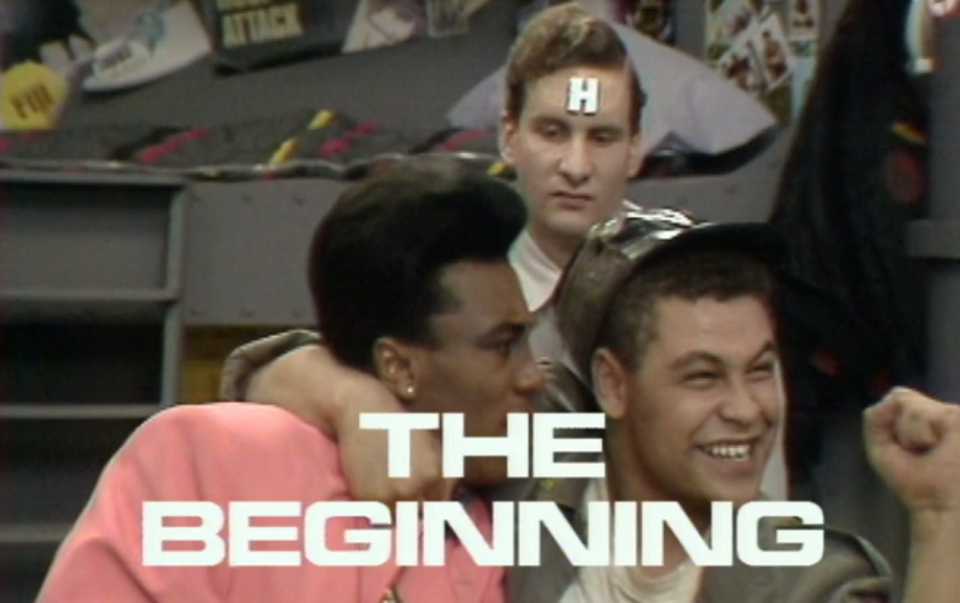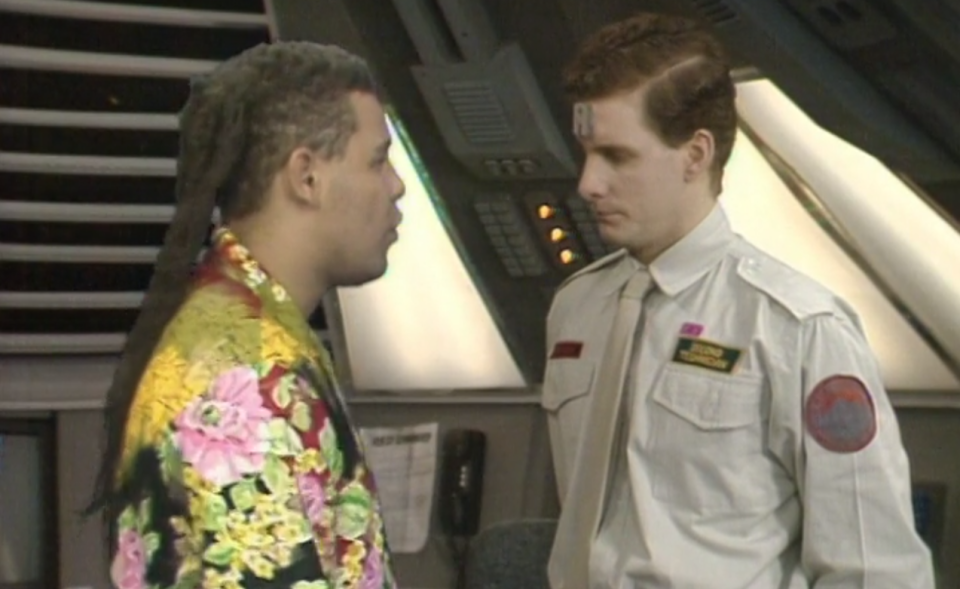Red Dwarf at 30: Looking back at the show's first series

Last week marked 30 years since the debut episode of cult sci-fi sitcom Red Dwarf. In the three decades since its arrival, Rob Grant and Doug Naylor’s show has gone on to become a stalwart of UK TV, clocking up an impressive 12 series and 73 episodes in the process.
Lasting for 30 years is no mean feat for any show, let alone a niche situation comedy. While one could perhaps argue that its quality has varied considerably over this period, Red Dwarf has nevertheless remained consistently popular throughout its run. The show’s mix of bizarre space adventures and strained workplace dynamics is a unique combination that has yet to be successfully replicated in the sitcom world.
Revisiting the show’s first series serves as a welcome reminder of not only how distinctive the show felt upon release, but also how far it has come since.
Early days

It’s no secret that series one of Red Dwarf was done on something of a shoestring budget. The effects are wonderfully ropey and the sets are all sparse and simple. As a result of these constraints however, and despite the show’s elaborate premise, it all still feels remarkably grounded. It may be a show about the last surviving human finding himself stranded in space, but it’s still a completely relatable and down-to-earth sitcom dealing with loneliness, boredom and annoying work colleagues.
The ‘monster-of-the-week’ episodes and the space-hopping high-concept outings were not yet a feature of the show. That’s not to say that there weren’t any imaginative ideas to be found in series one of course. ‘Future Echoes’ for example is a great early taster of the sort of inventive premise that would soon become the norm. However, the show isn’t as focused on these concepts as it would be in future series. Instead the focus is squarely on the central odd-couple dynamic between Lister and Rimmer and their day-to-day struggle to stay sane.
The End

The show’s pilot episode, fittingly titled ‘The End’, was a glorious introduction to what the show had in store. We learn a lot about Lister and Rimmer as individuals, from Lister’s grand plan upon returning home to Rimmer’s host of personality flaws, as well as about their own tempestuous relationship. By the end of the debut episode, we already feel as we know these characters intimately and have a pretty good idea as to how their time in space is likely to play out.
The stand-out moment of the episode is arguably when Lister first return from stasis only for Holly to bring him up to speed with the classic nonchalant warning, “everybody’s dead, Dave”. As the punchline is repeated over and over, we are given a telling insight into the gallows humour that would become the show’s staple.

The rest of the series gives us a taster of some of the bold ideas that would be hugely expanded upon in later outings once the show was given a bigger budget to work with. ‘Confidence and Paranoia’ and ‘Future Echoes’ both stand out, the former revolving around two personifications of Lister’s personality coming to life while the latter saw the show tackle the tricky nature of time travel for the first time.
Noticeably however, due to the aforementioned budget constraints, the action is always firmly rooted to the ship itself. You get a real sense of the scope and size of the Dwarf in this series as a result, and it becomes almost a character in its own right. The ship is an unforgiving drab hulk of metal whose gargantuan size only emphasises the crew’s isolation further.
Character progression

Through the entirety of series one there’s also a noticeable undercurrent of melancholy. There’s a sense that Lister is an abandoned man, devoid of human contact and facing a bleak existence endlessly slogging through space. This sadness is routinely punctuated however by his unwavering hope that one day he’ll make it back home.
It’s also clear when visiting the first season that Lister and Rimmer’s relationship has come a long way in the years since. They outright detest each other in the first series, the mutual grudging respect and the bond formed through years of adversity has yet to materialise.
The Cat meanwhile is noticeably far more feline in character, with it being far more pronounced that he is not all that far removed from a common house cat. His complete naivety of the real world and his obsession with fish are both still prominent recurring character traits.
Firm foundations
Taken as a whole, series one of Red Dwarf is gloriously lo-fi and undeniably inventive. The show was a breath of fresh air upon release and it’s irreverent and silly outlook was matched by its willingness to take risks. These early episodes may be 30 years old and the show may not have yet quite hit its stride at this point, but they provided the firm foundations upon which 12 more series of space related silliness was built.
Read More:
Red Dwarf’s greatest ever episodes
BBC reveals the most-watched Iplayer shows of 2017
Ranking the episodes of Philip K. Dick’s Electric Dreams

 Yahoo Movies
Yahoo Movies 
